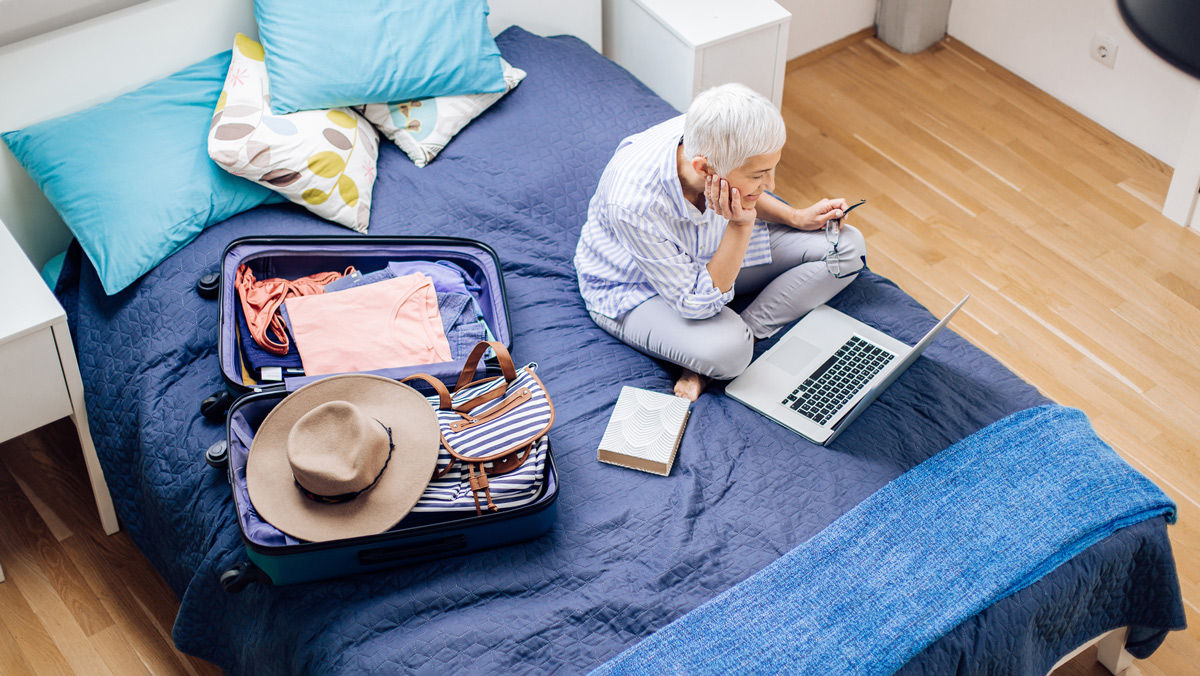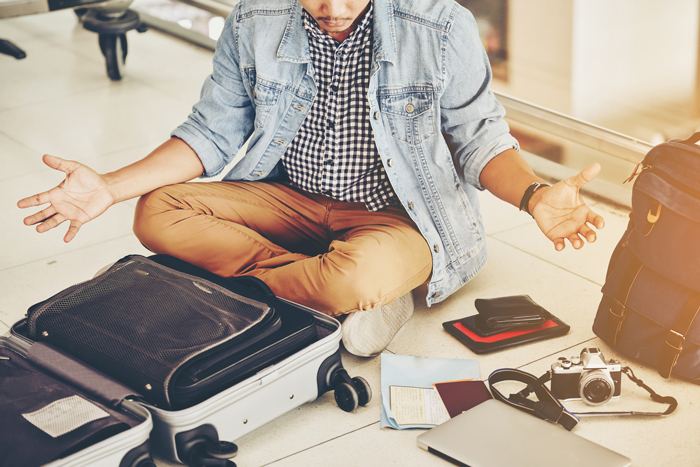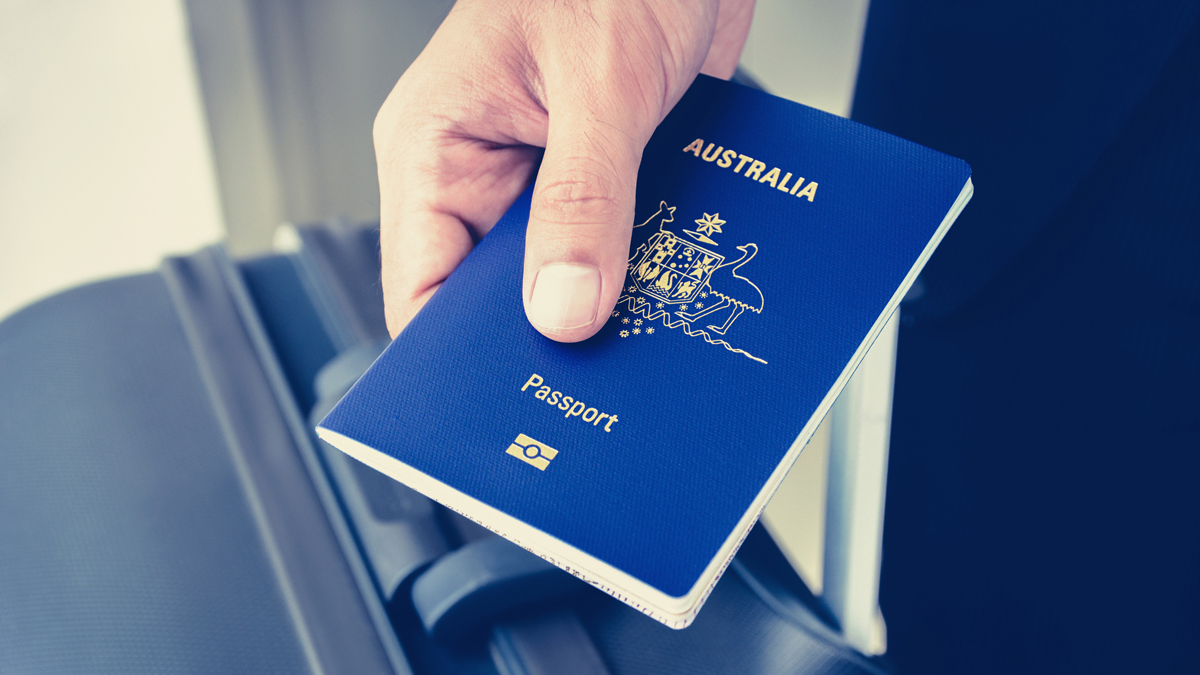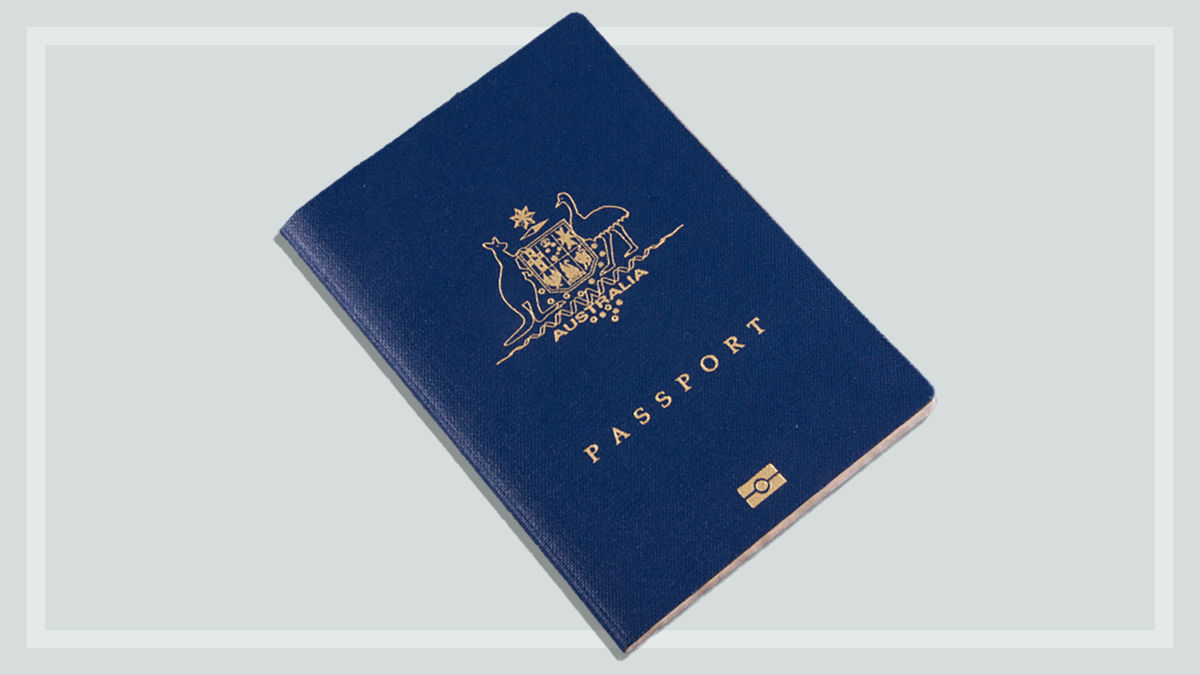Get our independent lab tests, expert reviews and honest advice.
What to do if your passport is lost, stolen or damaged

Need to know
- You're required by law to report the loss or theft of a passport as soon as possible
- Nearly two million Aussies who might have otherwise renewed or applied for new passports didn't do so during the COVID-19 lockdowns
- This has led to pent up demand for passport services which is expected to continue through 2023 and into 2024
On this page:
- Lost or stolen passport
- How to apply for a new passport
- How quickly can you get a new passport?
- How to get a new passport if you're overseas
- Damaged passport
- Replacing vs renewing your passport
- Passport fees
Your Australian passport is one of the most valuable items you’ll ever own. Aside from being your gateway to international travel, it’s still one of the most trusted and secure forms of ID.
So, do you know where your passport is right now? And are you sure it hasn’t expired?
We break down what you should do if your passport has gone astray or is damaged, and how you can get a new one.
In a nutshell:
- If your passport is lost or stolen, you’ll need to apply for a new one.
- If your passport is damaged (or out of pages), you’ll apply for a replacement.
- If your passport is expired, you will apply for a renewal.
Lost or stolen passport
If you’ve lost your passport or believe it’s been stolen, you must report it to the Australian Passport Office as soon as you can. There are penalties under the Australian Passports Act if you don’t report it as soon as possible. This is to protect people against identity theft. (Note: there’s no need to report a lost passport that you know had expired.)
In Australia: Call the Australian Passport Office Contact Centre (APOCC) on 131 232.
Overseas: Contact your nearest Australian diplomatic or consular mission in the country of application.
Should you report a lost or stolen passport to police?
If your passport is stolen, it’s recommended you report it to the police, as you’ll need a police report to claim travel insurance and renew your passport. Procedures will vary depending on which country you’re in. If you’re in a non-English speaking country, try to find an interpreter to help explain your situation to the police.
How to apply for a new passport
If your passport is lost or stolen, you’ll need to apply for a new one.
Go to online.passports.gov.au and start the application process there, if an embassy or consulate hasn’t already started it for you.
You’ll need:
- Two colour photographs that are 35–40mm wide and 45–50mm high. The size of the face from chin to crown can be up to a maximum of 36mm and a minimum of 32mm (check the Australian passport photo guidelines).
- Documents that prove your Australian citizenship and your identity.
- A referee or guarantor.
Referee vs guarantor
If you’re applying for your passport online, you’ll need to nominate a referee who’s willing to confirm your identity if they’re contacted.
Otherwise you’ll need a guarantor to sign your application form and endorse and sign the back of one passport photo.
A referee or guarantor must be an adult Australian citizen who has known you for at least 12 months. They can’t be related to you, married to you, in a de facto relationship with you, or share your home address. You’ll need to give their full name, phone number and either their current Australian passport details or the address at which they’ve been on the electoral roll for the past 12 months.
Your passport is an extremely valuable document – not just to you, but to identity thieves too
These requirements may vary for overseas applicants. Contact the Australian diplomatic or consular mission in your country of application for further details.
Proof of identity
You’ll need an Australian birth certificate or Australian citizenship certificate, documents that prove any change of name or change of gender, and other identity documents that show your photo and your current residential address.
The documents you will require will vary slightly depending on whether you were born before or after 20 August 1986, so check the Australian Passport office advice to ensure you have the correct identification.
How to lodge your application
If you’re in Australia, you’ll need to lodge your application in person at an Australia Post outlet.
If you’re overseas, you can lodge in person at an Australian diplomatic or consular mission or, in some cases, send your application through the mail.
For Australian diplomatic or consular missions, country-specific COVID restrictions may limit your ability to attend face-to-face appointments for a new passport. Contact the embassy in the country where you are for further details.
How quickly can you get a new passport?
As travel undergoes a post lock-down renaissance, the turnaround time for a passport application in Australia can vary. At the time of publishing it’s at least six weeks, but check the Australian Passport Office website for up-to-date processing times. If you’re overseas, you’ll need to factor in delivery time as well – the wait could be a few weeks longer, depending on your location and ongoing postal delays resulting from the pandemic.
Email your passport number and important contact information to yourself before you travel
If you need your passport sooner, the Australian Passport Office has a priority processing service that can produce your passport in two working days.
If you’re already booked on a flight…
Delay your travel arrangements until you have the necessary documents, and don’t risk booking new travel arrangements without a valid passport. If you can’t get a new passport or emergency passport in time, you won’t be able to check in to a flight or cross international borders by land or sea.
Check with your travel insurer – depending on the circumstances, most policies should cover at least some of the cost of your altered travel plans, extra accommodation and passport application fees. Situations like these are one of the reasons you need travel insurance.
How to get a new passport if you’re overseas
If you need to travel soon (generally in the next 10 days), it’s likely you’ll be issued an emergency passport, which is enough to get you on a plane home or on to your next destination.
But an emergency passport will be valid only for a short time (up to 12 months) and because it won’t include the biometric information of a standard passport, you may face entry restrictions in certain countries.
Currently, foreign countries have varying restrictions in place due to the COVID-19 pandemic, which may limit your ability to apply in person at an Australian embassy or consulate. Please contact the Australian diplomatic or consular mission in the country where you are for further details.
The wait time for an emergency passport will depend on where you are, but in most cases it can be produced locally in a couple of days by the diplomatic or consular mission you’re dealing with.
What to do if you don’t have the right ID with you
We don’t tend to travel the world with our birth certificates or our latest utility bills in our suitcases, so proving your identity can be tricky – especially if your passport was stolen, along with your other forms of identification.
The Australian diplomatic mission to the country you’re in will advise you on exactly what’s required, but in most cases you’ll need your birth certificate or citizenship certificate as primary ID, and several more items (with your photo and current address) as secondary ID.
CHOICE tip: Rather than have your birth or citizenship certificate mailed to you, it may be possible to have a friend or family member take the document to a Passport Office in Australia and have it ‘sighted’, scanned and faxed to the mission you’re dealing with.
What happens to the visa in your passport?
The Australian government can’t replace any foreign visas for you when it renews your passport.
If you had a visa in your lost or stolen passport, you’ll need to contact the nearest embassy or consulate of the country in question to ask whether you should apply for a replacement.

Tips for keeping your passport safe
Your passport is an extremely valuable document – not just to you, but to identity thieves too.
- Keep your passport in a secure place when at home.
- When you’re travelling, store it in a hotel safe if there is one – don’t leave it lying around your hotel room.
- Some countries require foreigners to have their passports with them at all times. If so, keep it on your person, not in your bag (which could easily be snatched).
- Use a money belt to carry your passport, cash, credit cards and other small essentials, and keep your passport in a ziplock bag to protect it from water damage.
What to do if your passport details were stolen by a hacker
Been caught up in a data breach? Here’s what you need to know or do if you think a hacker may have your passport number.
- As long as your physical passport hasn’t been lost or stolen, you’re still good to travel.
- Your passport details alone can’t be used by someone else for international travel, and the baddies can’t use your personal details to issue a new passport. The passport office uses facial recognition technology to protect your passport, so hackers would need your face too (which isn’t possible unless you’re Nicolas Cage or John Travolta in Face/Off).
- Unless you’ve been advised otherwise, you can still use your physical passport to identify yourself to government authorities, banks or other financial organisations (as long as you haven’t already cancelled it).
- Whether or not you need a new passport is up to you and your individual situation. If you’re concerned, you can get a new passport at any time.
- For more information on passport data breaches visit passports.gov.au/data-breaches, or if you’re concerned about identity theft in general, visit idcare.org.
Be prepared for passport loss
No matter how careful you are, sometimes you’re just unlucky. Being prepared with the necessary information and documents could mean jumping through fewer hoops, and getting back to enjoying your holiday much sooner.
1. Know your passport number
It’s the first thing you’ll be asked when you report your passport missing. If you don’t have a good memory for numbers, write it down or email it to yourself.
2. Email yourself important contact information
This might include the phone number of the Australian embassy in the country/countries you’re travelling to, the number of the Australian Consular Emergency Centre (+61 2 6261 3305 from overseas or 1300 555 135 within Australia), as well as your travel insurance details. Keep a paper copy of this information with you at all times, too.
3. Take extra identification with you and keep it safe
For example, your driver’s licence, credit cards, Medicare card and/or an item of mail with your current address. Just don’t keep it all in the same bag. Taking your birth or citizenship certificate with you isn’t a good idea, but make sure a friend or family member back home can get a hold of it, if necessary.
4. Pack two recent Australian passport-sized photos
This will save you having to hunt down a photographer or photo booth overseas. Passport photo standards vary from country to country, too. For example, a photo taken in a photo booth in the UK or the USA will not meet the requirements for an Australian passport application.
You’ve found your lost passport – now what?
So your ‘lost’ passport was actually just hiding in the lining of your suitcase or tucked safely in a forgotten pocket. Don’t celebrate yet – if you’ve already reported it missing, your passport is cancelled forever.
This means you can’t use it to travel and will still have to wait for a replacement. If you try to use a cancelled passport to cross borders, it will be kept at the airport and you won’t be permitted to travel.
If you find someone else’s passport, you should return it to the nearest Australian passport office or Australian embassy or consulate so it can be cancelled immediately.
Damaged passport
Loss and theft aren’t the only bad things that can happen to a passport. Plenty of travellers have to apply for a new passport because of damage.
According to a spokesperson from the Department of Foreign Affairs and Trade (DFAT), the most common ways that passports meet an untimely end are by fluid damage (spilled drinks, ink stains, perspiration, a spin in the washing machine) and dogs treating them as chew toys.
If you try to use a cancelled passport to cross borders, it will be kept at the airport and you won’t be permitted to travel
If your passport is damaged, you can apply for a replacement passport, rather than have to apply for a new passport.
Replacing vs renewing your passport
There’s a significant difference between ‘replacing’ your Australian passport and ‘renewing’ it.
Replacement
A passport replacement is only for Australians whose passport has run out of pages or is damaged, or who have changed their name or gender, or are updating their passport photographs. This service is free in some circumstances and comes with a reduced fee in others. The replacement passport is valid only as long as the passport it’s replacing (i.e. it’s not a renewal).
Passport replacement is not an option for Australians who have lost or had their passport stolen. The only option in these cases is to apply for a new passport.
Renewal
Eligible Australians may be able to apply for streamlined renewal of their passport. All you’ll need is your application checklist or form, two passport photos and your most recent passport.
To qualify, you must be an adult with your most recent Australian passport issued on or after 1 January 2006. The passport must also have:
- been issued when you were aged 16 or older
- had at least two years of validity when it was issued
- been issued with your current name, date of birth, place of birth and sex
- never been reported stolen, lost or cancelled.
If you’re not eligible for express renewal you’ll need to follow a similar process to applying for a new passport, including providing original supporting documents that prove your identity and citizenship, and nominating a referee or guarantor.
Some countries don’t let visitors enter on a passport that expires in less than six months, so it’s best to renew your passport long before its expiry date – and be sure to allow enough time for processing and postage on top of the six months.
It’s best to make your application online. If you can’t, call 131 232 or contact an Australian diplomatic or consular mission and they’ll send you a pre-filled form by post or email.

Passport fees
Renewal passport, valid for 10 years: $325 (adult); $164 (child aged five years and under, or adult aged 75 years and over)
Replacement passport: $204
Emergency passport overseas: $204
Priority service: $237 (additional fee)
Overseas surcharge: $146 (adult); $71 (child)
Details are correct as of January 2023. Check passports.gov.au for the latest fees and rules.
CHOICE tip: Your travel insurance may help cover the fees for lost or stolen passports.






